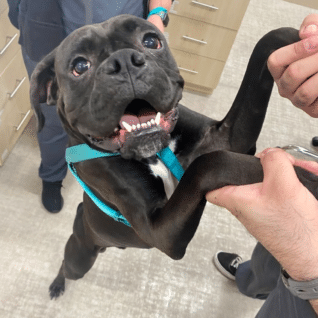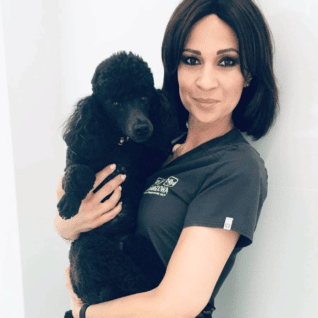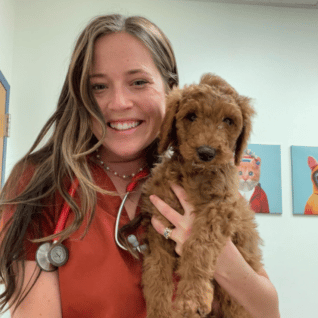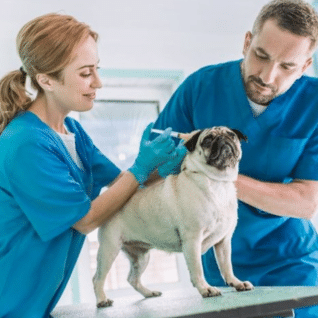Let’s dive right in…
What are vaccines?
Vaccines are substances used in medicine to encourage the formation of immunity to certain diseases. The most common vaccines given to dogs are rabies and DA2PP (canine combo). Some vaccines will be administered if the patient is at risk: bordetella and leptospirosis vaccination. Veterinary professionals will also determine which vaccines should be prioritized based on the geographical location.
What kind of vaccinations are there?
There are injectable, oral, and intranasal vaccines. These different administration routes depend on the manufacturer of the vaccines. The most common administration route is subcutaneous (injectable).
What is each vaccination’s purpose, length of immunity, and how often do dogs get it per year?
The purpose of the vaccines is to produce immunity for different viruses:
Does this appointment usually fall under wellness exams, or it’s considered an appointment of their own?
Before doing any vaccines, the veterinary professional will do a physical exam to determine your dog’s health condition. The physical exam pre-vaccination can fall under a wellness exam. Still, it’s recommended to take your dog annually to your local veterinarian to do rechecks, blood work, and follow-up tests.
Do anything dog parents need to bring to this appointment?
If dog parents are unsure of the vaccines that have been given to their pet/pets in the past, they should bring previous records. This way, the veterinary professionals can determine which vaccines are due; we wouldn’t want to over-vaccinate your dog!
If your dog is from a breeder, you likely have all paperwork needed, as they are required to provide all information from medical to breed certifications. If your dog was adopted from a rescue or shelter, they likely provided as much medical information they were able to get at tthe time of rescuing.
Anything to expect post-vaccination for their pup?
After a vaccine appointment, pet parents should look out for adverse reactions. Sometimes dogs experience loss of appetite, vomiting, or diarrhea. These can be common in the first 24 hours; please reach out to your veterinarian if these symptoms continue. The most severe reaction caused by vaccines is hives and swelling of the face. If you notice this on your dog, consider immediately taking it to the nearest veterinary clinic to assess the symptoms.
Why are vaccines so important?
Prevention is the best medicine for our dogs! It’s essential as dog parents that we keep our dogs up to date with their vaccines. When having a pup in our lives, we need to consider annual veterinary visits and vaccine appointments. If you have any questions or concerns regarding vaccines, don’t hesitate to ask your veterinarian. They will be thrilled to help you learn all about them!









Conversation